Contents
In the procedure of compression of gases, the air compressor creates a lot of heat. The air compressors can be cooled in a variety of methods, like either with air or a chilled liquid. When purchasing a rotary screw compressor, consumers often choose whether they want an air-cooled or a water-cooled type.
Air-cooled compressors account for around 80% of the screw compressors, while water-cooled compressors account for 20%.
Air-Cooled Compressor
Air-Cooled Compressor
An air-cooled compressor utilizes the air to cool down the compressed gas and any other materials it encounters. The majority of rotary screw compressors have air-cooling systems, particularly ones with less than 100 horsepower. Smaller rotary screw compressors, including less than 40 horsepower, are usually limited to air-cooled units.
Working of Air-Cooled Compressor
When the compressor generates heat, the air-cooled system utilizes a blower and cooling system to reduce the temperature. Energy loss from an air-cooled compressor may be recaptured by utilizing the power to generate facilities or charge a heating generator, conserving organizations cash on power bills.
Conditions for Air-Cooled Compressor
A significant amount of resources and chilling air is required for an air-cooled compressor to provide adequate circulation. If the design and management are not precise, there may be various technical concerns, which might lead to inappropriate thermoregulation in commercial areas. Examine to see whether the compressor chamber is boiling. If the compressor room’s heat is not consistent, it might lead to malfunctioning systems and unplanned breakdowns.
Energy Cost for Air-Cooled Compressor
Most air-cooled screw compressors offer improved performance and can now withstand higher surface temperatures than before. Furthermore, users will save the maximum money in fewer water bills. An air-cooled compressor unit has a lower operating cost, is easier to build, and can be placed anywhere around the facility.
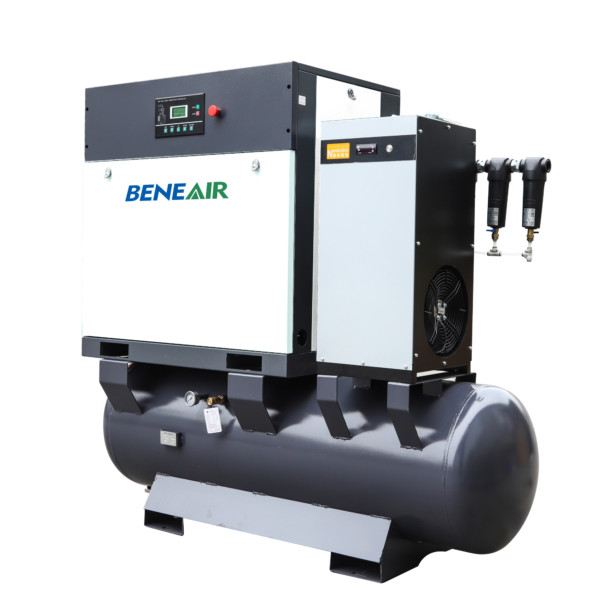
Water-Cooled Compressor
Water-Cooled Compressor
Water-cooled compressors treat the pressurized gas and every other chemical involved during the process of compression with cold fluid from an external energy source. Water-cooled compressors are becoming more frequent in more significant equipment with horsepower ranging from 125 to 600.
Working of Water-Cooled Compressor
A concentric tube heat converter in the cooling system decreases temperature. Water-cooled systems are more frequent in high-horsepower machinery. Corporations can recycle chiller water in a new heating system, often used for bathing, laundry, and washing. As you may not want much-boiled water, a water-cooled compressor can help a corporation spend on a smaller water heater.
Conditions for Water-Cooled Compressor
High-quality cooling water is required for any water-cooled compressor to perform correctly. If the water rushes from a part of the ocean, a stream, a well, or a lake, a chilling tower is required. A private network is also necessary since it purifies the fluid and extends the compressor’s life.
If the working area does not have such features, it will strain your finances. You may have to set up the mechanical system and also pay attention to its upkeep, which might be pricey. For situations like when you already have chillers that are confined on-site, make sure that it is good enough to handle the water-cooled compressor well before the installation.
Energy Cost for Water-Cooled Compressor
Customers should evaluate the power expenses of the cooling system, as well as the expenditures of water and water processing when choosing a water-cooled compressor. On the other hand, some clients reuse the cold water to warm up production lines, such as radiators, to save money on fuel and thermal expenditures. As a result, they save money in that region.
Air-Cooled Compressor Vs. Water-Cooled Compressor
Air-Cooled Compressor Vs. Water-Cooled Compressor
Air-Cooled Compressor
Pros
- The budget for construction and maintenance is relatively minimal.
- It may be installed in an open location and function effectively.
- Compared with a water-cooled compressor, it is less expensive.
- You will not have to think about running out of air because it is readily available in the environment.
Cons
- When compared to water-cooled systems, its performance is lower.
- If there is not enough space, inappropriate aeration happens, leading to the equipment malfunctioning.
- It is necessary to have a high volume of air passing.
- It might also be dangerous if the device is situated in a polluted environment.
Water-Cooled Compressor
Pros
- Extremely efficient.
- You can start this work if you live in a location with abundant water or water resources.
- In a restricted room, water can perform a terrific job if there is enough present.
- It does not demand ample space because no aeration is necessary.
Cons
- It is extremely expensive.
- It is only applicable if there is lots of water accessible.
- The water temperature must be kept constant for the compressor to perform appropriately.
- They cannot be put in areas where water is scarce.
- Water purity must not be risked.
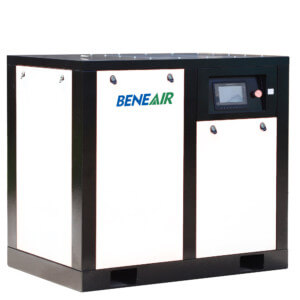
How to Choose an Air-Cooled or Water-Cooled Compressor?
How to Choose an Air-Cooled or Water-Cooled Compressor?
Both of these two systems are used in different industries. You cannot say one is better than the other. However, it would be best if you chose one which is the most incredible option for your particular company’s needs.
- Horsepower Requirement
Consider the horsepower needs of your corporation’s instruments and determine the suitable cubic feet per minute and psi specifications for your air compressor. If you only use the equipment sometimes, you might even get away with a smaller device, but if you need them frequently, you must acquire a bigger model.
- Space
When purchasing an air compressor, ensure that the area has sufficient room. Where space is limited, rather than purchasing a single huge compressor, you should consider purchasing a number of smaller compressors and distributing them across the plant. The vital point to note down is that almost a lot of low-horsepower screw compressors are not found with water-cooled types.
- Energy Cost
As the cost of water regulation is increasing day by day, it is critical to think about how much you can and have to spend to operate and use your machinery. Water-cooled designs are more costly because they use a lot of water to chill the airflow. Screw compressors that are air-cooled utilize fewer water resources to operate their devices and also have reduced maintenance and operational expenses.


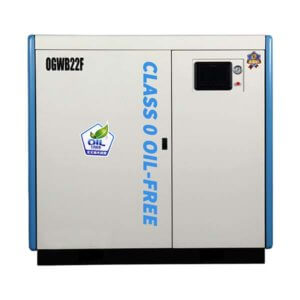
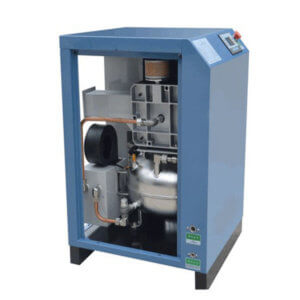
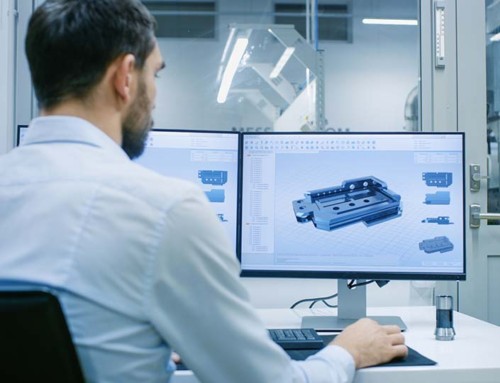

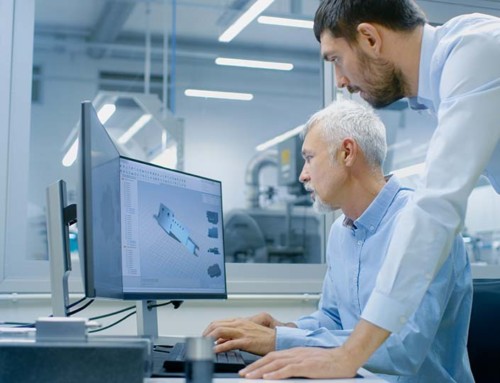
Leave A Comment